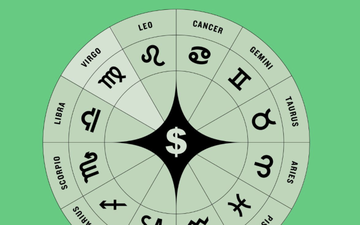
Meals inspired by traditional Mediterranean foods may reduce the risk of developing dementia and memory loss, according to a new study.
"Evidence continues to show that you are what you eat when it comes to brain health," Dr told CNN. Richard Isaacson, who runs the Alzheimer’s Prevention Clinic at Weill Cornell Medicine and the New York-Presbyterian Hospital.
"Në këtë studim të rëndësishëm, studiuesit treguan se është e mundur që jo vetëm të përmirësohet funksioni njohës - më specifikisht kujtesa - por gjithashtu të zvogëlohet rreziku për sëmundjen Alzheimer", tha Isaacson, i cili nuk ishte i përfshirë në studim.
"Sa më shumë të përputhej stili i tyre i jetesës me dietën mesdhetare, njerëzit kishin një vit shtesë më pak plakje të trurit. Kjo është e habitshme," shtoi ai. "Shumica e njerëzve nuk janë të vetëdijshëm se është e mundur të marrësh nën kontroll shëndetin e trurit, megjithatë ky studim na tregon pikërisht këtë.”
In January 2020, for the third year in a row, the Mediterranean diet - rich in healthy fats, fish, whole grains and low in processed foods and red meat - was announced as the best diet in the world by US News & World Report.
The Mediterranean diet did not leave many popular diets, such as keto or vegan, and was considered the easiest diet to maintain. This diet was first introduced in 1993 along with its food pyramid. There is no fixed list of products, because each region of the Mediterranean adapts it according to gastronomic tradition.

Common to the Mediterranean regions, where our country is part of, is the wide range of foods: vegetables, fruits, seeds, cereals, olive oil, yogurt, cheese, fish, eggs and wine. The secret of the Mediterranean diet lies in the freshness of the food; they should be bio and seasonal. The Mediterranean diet allows for small amounts of meat and sweets and is always accompanied by physical activity.
Olive oil is one of the secrets of this diet. It should be extra virgin because the saturated fats are in small percentage, compared to ordinary olive oil.
Benefits of the Mediterranean diet: strengthens heart health, protects the body from cancer, prevents overweight and diabetes, turns out healthier than the vegan diet.
The Mediterranean diet is more of a lifestyle than a proper diet. Find a simple guide below:
- Every day fruits and vegetables of the season.
- Every day whole grains (wheat, corn, rice, oats, barley), beans, lentils, chickpeas.
- Two to three times a week you should consume fish and seafood.
- You should include nuts, almonds, sesame, pumpkin seeds and spices such as oregano, rosemary, thyme, etc. in your diet.
- Red meat and cakes should be in small quantities.
- Use of olive oil.
- Controlled consumption of red wine and herbal teas.
- Physical activity.





